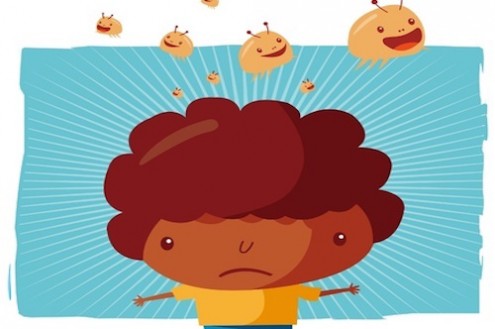One of the last things you want to hear when your child comes home is that there's a lice outbreak at school.
Six million to 12 million U.S. children are infested with head lice every year, but that doesn't make it any easier to deal with.
It's important to know that head lice are not a health hazard or a sign of poor hygiene, and, in contrast to body lice, are not responsible for the spread of any disease. Instead, it's more of a nuisance and a huge pain that you have to deal with.
A study conducted at Southern Illinois University Edwardsville found that at least 25 states have lice populations that have become resistant to common OTC medications.
Is there a way to prevent your child from catching these "super lice"?
Listen in as lead author of the study, Kyong Sup Yoon, PhD, discusses the new super lice and what you can do to prevent these lice from affecting your family.

Health Topics A-Z
Your Child Has Head Lice: What Should You Do?
Guest
: Kyong Sup Yoon, PhD
From the Show: The Dr. Leigh Vinocur Show
Summary: According to a recent report, at least 25 states have lice populations that don't respond to common OTC treatments.
Air Date: 9/18/15
Duration: 10
Host: Leigh Vinocur, MD
Tagged under




 Dr. Kyong Yoon is an Assistant Professor at Southern Illinois University-Edwardsville. He is an environmental toxicologist working on insecticide resistance and mode of action.
Dr. Kyong Yoon is an Assistant Professor at Southern Illinois University-Edwardsville. He is an environmental toxicologist working on insecticide resistance and mode of action.